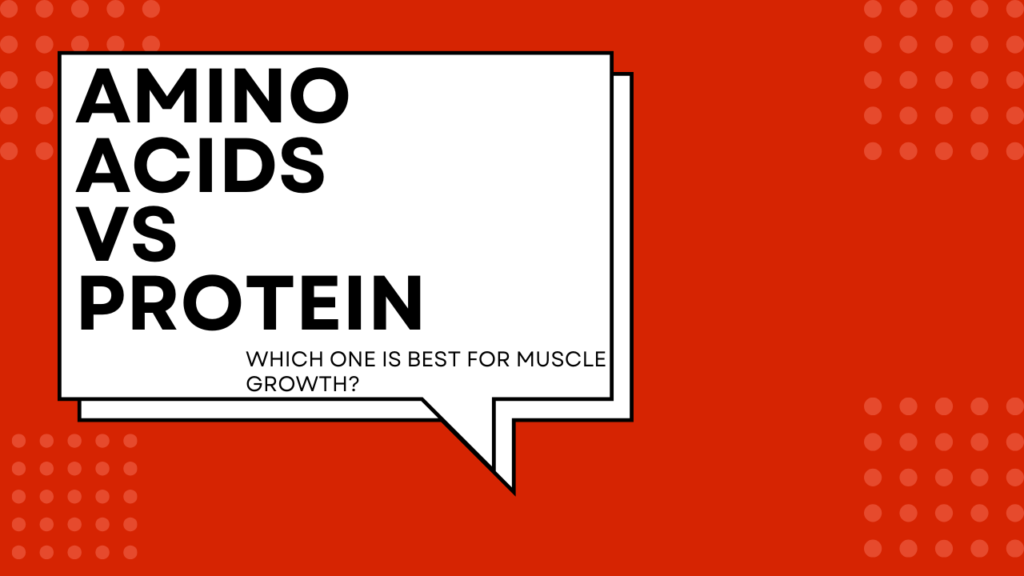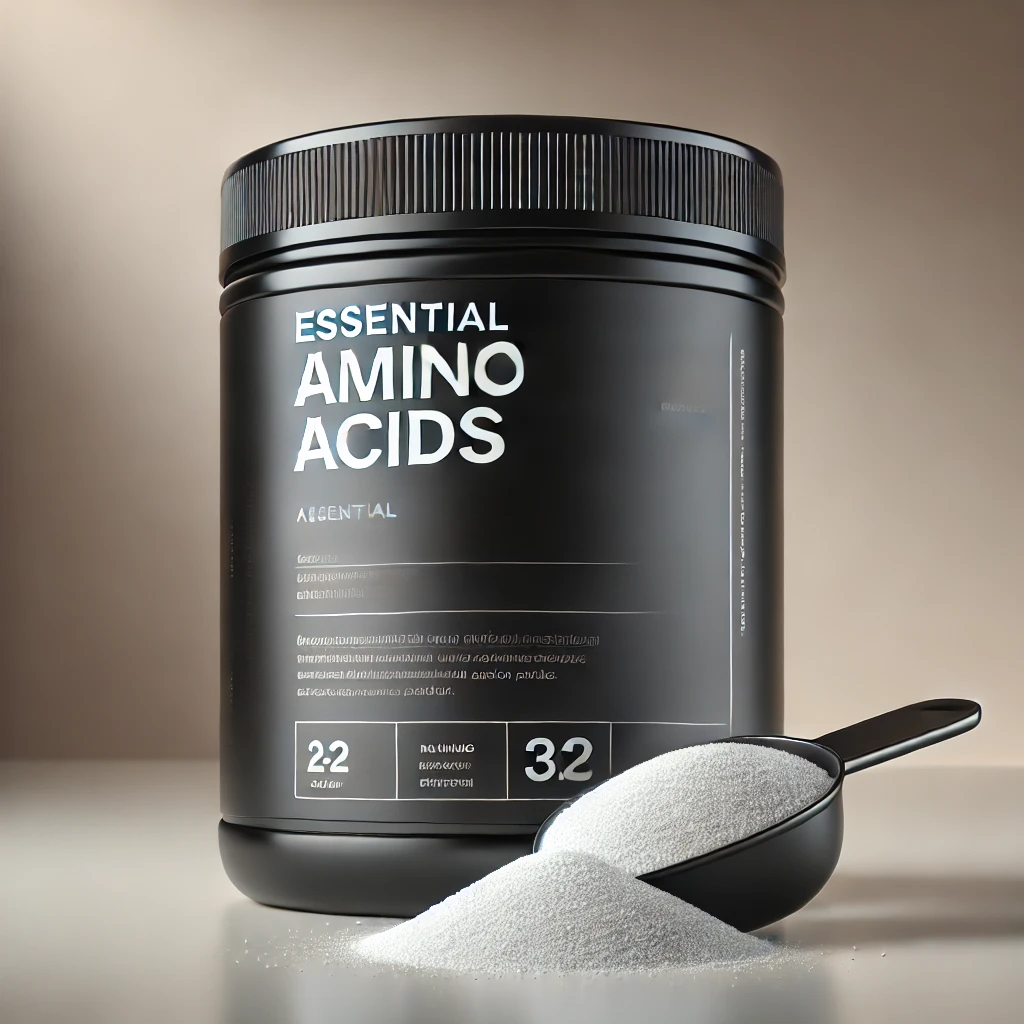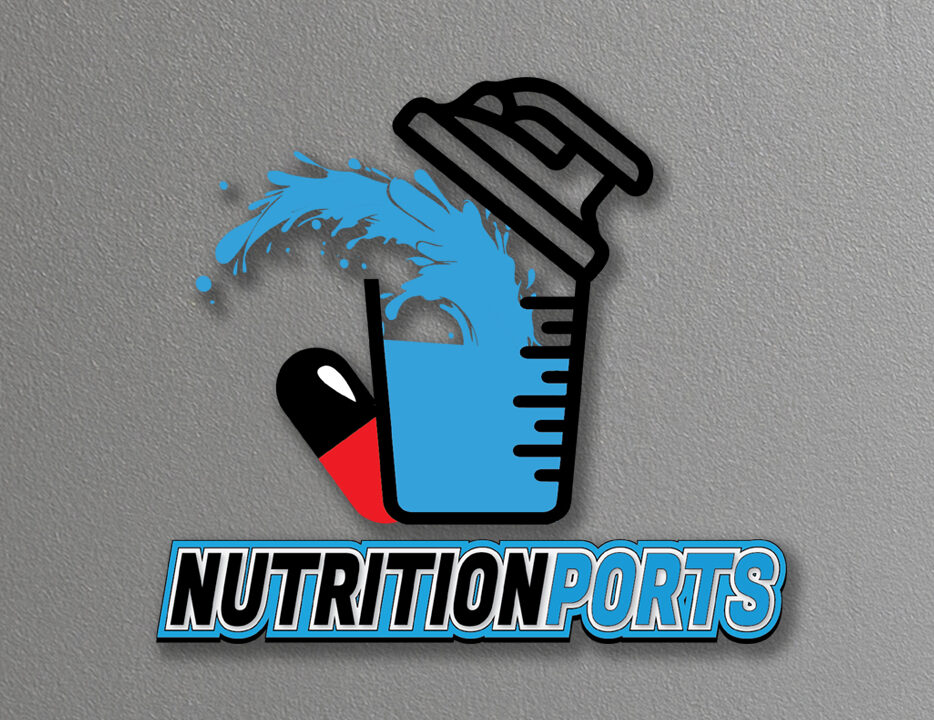When it comes to amino acids vs protein, understanding their core differences is key to optimizing your nutrition. Are amino acids better than protein, or do they serve different purposes? Proteins are complex molecules composed of amino acids, essential for muscle repair, immune function, and overall health.
Meanwhile, amino acids act as the building blocks of protein, directly fueling muscle growth, recovery, and countless metabolic processes.
So, which one truly delivers the best results? Let’s break it down.

Table of Contents
Quick Comparison
Protein and amino acids play vital yet distinct roles in muscle growth and recovery. While protein provides a complete nutritional profile, amino acids deliver rapid absorption, fueling muscles more efficiently in certain situations. But can I take amino acids instead of protein and still achieve the same results?
The answer isn’t one-size-fits-all. Amino acids support targeted muscle repair, while whole proteins offer long-lasting nourishment essential for overall recovery. Depending on your fitness goals, the right balance between the two can maximize your performance and results.
What is Amino Acids?
essential amino acids vs nonessential amino acids
Amino acids are the building blocks of proteins, crucial for a wide range of bodily functions, from muscle growth to immune support. But did you know not all amino acids are created equal? Essential amino acids vs nonessential amino acids is a key distinction that affects how your body utilizes them.
Essential amino acids cannot be made by the body and must be obtained through your diet, while nonessential amino acids can be produced internally. Both play vital roles in maintaining muscle health, but understanding the difference can help you optimize your nutrition.
So, whether you’re looking to boost performance or support recovery, knowing how these amino acids work together can take your fitness-lifestyle to the stars
Key Points about Amino Acids:
- boost muscle recovery – amino acids help repair and rebuild muscle tissue after exercise
- prevent muscle breakdown – they reduce muscle loss during intense workouts
- support immune function – amino acids play a vital role in strengthening the immune system
- enhance energy levels – they help maintain energy throughout the day

What is Protein?
Whey protein powder for muscle gain
Protein is an essential nutrient that fuels muscle growth, repairs tissue, and supports overall health. But if you’re aiming to gain muscle, you might wonder—what’s the best way to ensure your body gets enough protein?
Whey protein powder has become a favorite for many because of its fast absorption and rich amino acid profile. It helps repair muscles quickly after workouts, promoting lean muscle growth and strength. If you’re serious about building muscle, incorporating whey protein powder can provide the extra boost your body needs for maximum results.
Key Points about Protein:
- supports muscle growth – protein is essential for building and repairing muscles
- aids in recovery – it helps the body recover after intense workouts
- boosts metabolism – protein can increase metabolism, aiding in fat loss
- strengthens immune system – it plays a key role in supporting your immune system, keeping you healthy

Benefits of Essential Amino Acids
Have you ever considered how essential amino acids impact your body beyond just muscle growth? These powerhouse nutrients are the foundation of protein synthesis, ensuring your body can repair, recover, and perform at its best.
Unlike nonessential amino acids, your body can’t produce essential amino acids on its own, meaning you must get them through food or supplements. They play a key role in muscle recovery, energy production, and even brain function. If you’re looking to optimize your health, improve endurance, or speed up recovery, making sure you get enough essential amino acids is a game-changer.
Integrating them into your daily nutrition can help you unlock better performance, faster recovery, and overall well-being.
Key Benefits of Essential Amino Acids:
- Supports muscle recovery and growth
- Boosts energy production and endurance
- Enhances brain function and mental focus
- Strengthens the immune system
- Aids in hormone and enzyme production

Benefits of Taking Protein Powder
Have you ever wondered how protein powder can truly elevate your fitness journey? Whether you’re aiming to build muscle, speed up recovery, or simply increase your daily protein intake, protein powder offers a variety of benefits that often go unnoticed.
By adding protein powder to your daily routine, you’re not just helping your muscles repair and grow. Protein powder can also support bone health, something many overlook. It’s a fantastic way to make sure your bones stay strong, especially if you’re active or trying to stay in top shape. Plus, it’s a simple way to keep your skin, hair, and nails looking healthy and vibrant—protein helps maintain your body’s natural glow from the inside out.
And let’s not forget about all the benefits of protein drinks for muscle gains, and proteins role in curbing hunger and cravings. Protein helps keep you full longer, making it easier to stick to your diet goals without feeling deprived. Whether you’re looking to build lean muscle or just stay on track with your nutrition, incorporating protein powder into your daily regimen is a quick and easy way to optimize your health.
Key Benefits of Protein Powder:
- Promotes healthy skin, hair, and nails
- Controls hunger and reduces cravings
- Enhances bone strength and health
- Boosts muscle recovery and growth

Health Benefits Amino Acids vs Protein
Health Benefits of Amino Acids
What if the key to better health, faster recovery, and sharper focus was hidden in something as small as an amino acid? While they are the building blocks of proteins, they also have powerful benefits on their own. Amino acid—what is it good for? Beyond muscle growth, essential amino acids support energy production, immune function, and even cognitive performance. They help repair tissues, regulate metabolism, and keep your body functioning at its peak. Getting the right balance can make a real difference in how you feel and perform every day.
Key Benefits:
- Metabolic functions
- Mood and sleep regulation
- Immune system support

Health Benenefits of Protein
What if getting the right nutrition was as simple as a single drink? Proteins are the foundation of strength, energy, and recovery, but not all sources deliver the full benefits your body needs. That’s where the benefits of drinking Ensure High Protein come in—it provides a fast, convenient way to fuel your muscles, support immune health, and maintain energy levels throughout the day. Whether you’re recovering from workouts, managing your daily protein intake, or looking for an easy way to stay nourished, this high-quality protein source ensures your body gets what it truly needs.
Key Benefits:
- Muscle health
- Weight management
- Bone health

Best Protein Supplements For Muscle Gain
Optimum Nutrition Gold Standard Whey Protein
- Price: Approximately $59.99 for a 2 lbs (approximately 907 grams) container, providing approximately $1.33 per serving.
- Description: Known as one of the most trusted and widely recognized protein powders globally, Optimum Nutrition Gold Standard Whey delivers high-quality protein with a smooth, delicious taste. It’s a perfect choice for those looking to boost muscle growth and recovery, offering 24 grams of protein per serving to fuel your fitness goals. Whether you’re an athlete or simply looking to supplement your protein intake, this product provides the essential nutrients your body needs.
Thorne Chocolate Whey Protein Isolate
- Price: Approximately $62 for a 30-serving container, equating to about $2.07 per serving.
- Description: This protein powder is praised for its smooth texture and high-quality ingredients. It’s NSF Certified for Sport, ensuring it’s free from banned substances.
Naked Grass-Fed Whey Protein Powder
- Price: Approximately $76 for a 152-serving container, averaging about $0.50 per serving.
- Description: This unflavored protein powder is made from grass-fed whey, offering a clean and natural protein source without artificial additives.
Dymatize ISO100 Hydrolyzed Protein Powder
- Price: Approximately $2.76 per serving, with a 3 lb container priced around $69.99.
- Description: This hydrolyzed SUPER whey protein isolate is designed for rapid absorption, making it ideal for post-workout recovery.
Iso Whey Zero by BioTech USA
- Price: Approximately $98.89 for a 908g (2 lbs) container, with EU pricing at €52.90, ensuring a top-tier option for serious athletes.
- Description: A premium whey protein isolate packed with extra BCAAs and glutamine, perfect for those who demand high-quality protein without unnecessary additives. Designed for optimal muscle recovery and lean muscle growth, it delivers pure, fast-absorbing protein with zero sugar and minimal carbs.
The Best Amino Acid Supplement For Muscle Growth
AminoCo Heal Essential Amino Acids
- Price: Approximately $69.95 for a 30-serving container.
- Description: Tailored for recovery, this formula provides a potent mix of essential amino acids to enhance muscle repair and reduce soreness. It’s backed by clinical research and free from unnecessary additives.
AminoCo Perform Essential Amino Acids
- Price: Approximately $69.95 for a 30-serving container.
- Description: Designed for athletes, this supplement combines essential amino acids with performance enhancers to boost strength, focus, and endurance during workouts.
AminoCo Purity Essential Amino Acids
- Price: Approximately Single Jar: $99.00Two Jars: $94.05 per jar (5% discount)Three Jars: $89.10 per jar (10% discount)
- Description: Each jar contains 30 servings, with a recommended serving size of one scoop (approximately 10 grams) per day. Purchasing multiple jars offers cost savings, and there’s a 15% discount on subscription orders.
- Focused on liver health, this formula delivers essential amino acids along with ingredients aimed at supporting liver function and detoxification.
AminoCo Life Essential Amino Acids
- Price: Approximately $95.00 (discounted to $66.50).
- Description: While it’s excellent for muscle maintenance and general well-being, it’s more geared towards those looking for an all-around health boost rather than solely muscle growth.
WILD FUEL Essential Amino Acids
- Price: Approximately: Priced at $25.99 ($22.09 with a subscription), this 120-capsule bottle provides a 30-day supply for optimal muscle support.
- Description: Essential Amino Acids Supplement is available on Amazon. This supplement offers a comprehensive blend of all nine essential amino acids, including branched-chain amino acids (BCAAs), designed to support muscle growth, power, and recovery. It’s formulated to be vegan, non-GMO, and gluten-free, catering to a wide range of dietary preferences.
- Quality Assurance: Crafted with vegan, non-GMO, and gluten-free ingredients. Produced in GMP-certified facilities in the USA, ensuring premium quality and third-party testing for purity.
- Please note that prices may vary depending on the retailer and any ongoing promotions.
Conclusion
In this blog post, we’ve explored the key differences between amino acids vs protein, their roles in supplements, fitness, and overall health. We’ve also highlighted the top products we at NutritionPorts recommend for muscle growth. So, are amino acids better than protein? Have you tried either? Share your experience in the comments below—we’d love to hear your thoughts
FAQs
what are the 9 essential amino acids?
The nine EAAs are: histidine, isoleucine, leucine, lysine, methionine, phenylalanine, threonine, tryptophan, and valine. They’re found in high-protein foods like meat, eggs, and dairy, as well as in EAA supplements for muscle support.
what are the essential amino acids?
Essential amino acids (EAAs) are nine amino acids that your body can’t produce on its own, so you need to get them from food or supplements. They play a key role in muscle growth, recovery, and overall health.
what does whey protein do?
Whey protein helps build muscle, boost recovery, and support overall health. It’s fast-digesting, rich in essential amino acids, and great for muscle growth, fat loss, and performance. Whether you’re an athlete or just staying active, whey protein is a simple way to fuel your body and hit your fitness goals.
what does protein do for the body?
Protein is essential for building and repairing muscles, supporting immune function, and keeping skin, hair, and nails healthy. It’s a key nutrient that helps your body recover, grow, and stay strong.




